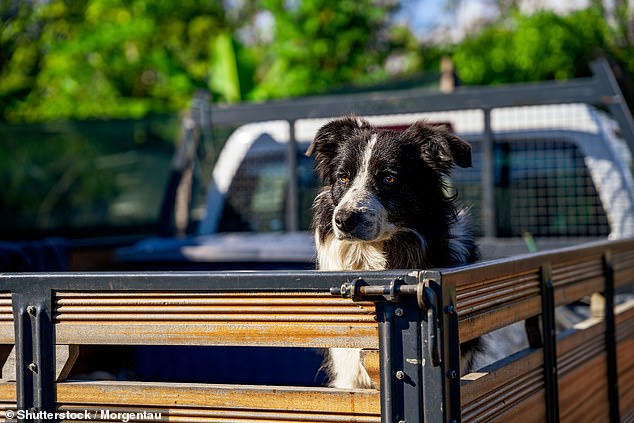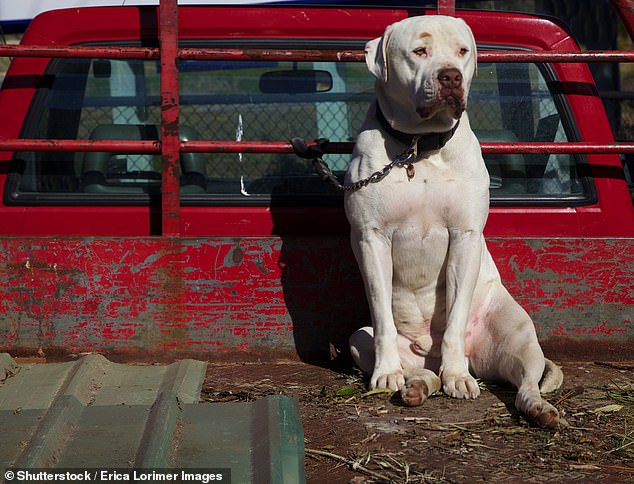Queensland become the last state in Australia to ban dogs from sitting in ute trays unrestrained
>
Dogs are now banned from traveling on unrestricted utes and trailer trays throughout Australia.
- QLD has banned dogs from being left unrestrained in ute trays
- Violators can face hefty fines of up to $8,625 if caught
- Every other state had already banned dogs from unrestricted travel.
- It’s part of a series of changes to state animal care law.
Dogs are now banned from unrestricted utes and tow trays across Australia after Queensland became the latest state to introduce the law.
The state government passed legislation banning the practice last month as part of a series of changes to Queensland’s Animal Care and Protection Act.
Drivers caught with an unsecured dog in their ute or trailer tray can face fines of up to $8,625.

Dogs will no longer be allowed to remain loose in the back of utility vehicles and trailers in Queensland under new laws (file image)

Queensland is the latest state in Australia to implement the rule after the government updated the state’s Animal Care and Protection Act (Queensland Premier Annastacia Palaszczuk pictured)
People who observe motorists driving with unrestrained dogs in their utility vehicle or trailer can report them to the RSPCA.
The government recommends keeping a dog in a large enclosed crate or tethering it to the vehicle while driving.
Farmers may let dogs loose in the back of their pickup trucks or trailers if the dog is helping them move livestock.
Other amendments to the Animal Care Act include a ban on spiked dog collars and empowering animal welfare inspectors to intervene when an animal is found to be in danger.
Metal collars inflict pain on dogs as a form of ‘punishment’ by tightening them around the neck when pressure is applied.
The individual holding the leash can pull on the collar, with the blunt points pinching the animal’s neck.
A new animal welfare law was also introduced under the act where if someone breaches their duty to care for an animal that results in their death, serious deformity, serious disability or prolonged suffering, can be imprisoned.
Violators face up to three years in prison or up to $287,500 in fines.

Violators face fines of up to $8,625 if they fail to properly secure their pet (file image)

Other amendments to the state’s animal care law include a ban on spiked dog collars (a spiked collar is pictured around a dog’s neck)

Agriculture Minister Mark Furner (pictured) reflected on the amendments, saying Queenslanders wanted “to see animals better protected and people who don’t comply properly punished.”
Agriculture Minister Mark Furner reflected last month on sweeping changes to Queensland’s Animal Care Act, which had not been updated since 2001.
“This follows the first major review of the Act in 20 years and extensive community consultation with over 2,300 Queenslanders,” it said.
“Queenslanders want animals to be better protected and people who don’t comply to be properly punished, and that’s exactly what these updated laws provide.”
“Being able to love and own pets like dogs is an important part of many people’s lives and Queenslanders want such pets to have strong protections,” Furner added.
